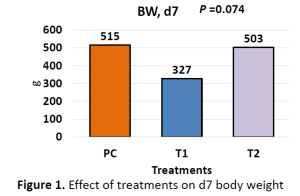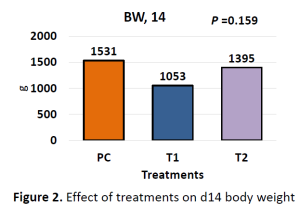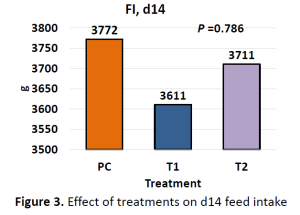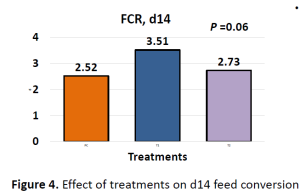Effect of preheating at different times during physiological zero on hatchability and post-hatch performance of broilers
Grace Rutherford*, Shelby Thomason, and Oscar Tejeda1
1 Faculty advisor
Storage of fertile eggs is a common practice in the poultry industry that directly affects the quality of chicks being raised. Fertile eggs need to be supplied with adequate temperature, relative humidity, turning, and ventilation for the development of the chicken embryo. Temperature is the most important parameter affecting cell development in the embryo’s body. A total of 150 fertile eggs were collected and incubated for 21 days. Before incubation, eggs were exposed to their experimental treatments: PC, storage for 4 days; T1, storage for 10 days and preincubation heating at 86 F for 5 hours on embryonic day 5; T2, storage for 10 days and preincubation heating at 86 F for 5 hours on embryonic day 8. After hatching, chicks were raised for 14 days. Body weight, feed disappearance and FCR were measured on days 7 and 21. Statistical analyses were conducted using the general linear model of SPSS statistical software version 21. T1 tended to have lower body weight on d7 compared to PC and T2 (P = 0.074). Feed conversion tended to be higher in T2 (P = 0.06). Results from this experiment show that preincubation heating on day 8 seems to have positive results compared to the control group.
Key words: broiler chicken, physiological zero, feed intake, growth performance




Questions
Contact Dr. Oscar Tejeda
